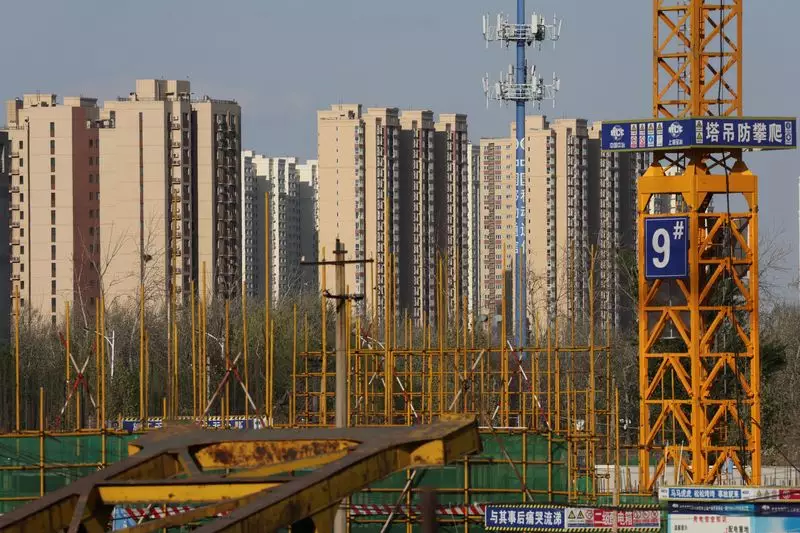In recent times, the Chinese real estate market has showcased alarming trends that could have profound implications for the national economy. The data released for August 2023 reflects a significant downturn, with new home prices plummeting at an unprecedented rate not seen in over nine years. As indicators point towards a challenging landscape, it becomes imperative to dissect the factors contributing to this decline and their potential impact on broader economic stability.
The National Bureau of Statistics (NBS) of China revealed that the prices of new homes decreased by 5.3% year-over-year in August. This decline is a stark deterioration compared to a 4.9% drop recorded in July. Moreover, the data indicates that new home prices have now dipped for the fourteenth consecutive month, suggesting a deep-rooted issue within the real estate sector. The continuous drop in prices raises red flags about the overall health of the property market and signals waning consumer confidence.
The implications of these trends are serious. The property sector, historically a pillar of the Chinese economy, is dealing with a myriad of challenges, from heavily indebted developers unable to complete projects to potential economic stagnation due to low buyer confidence. As a consequence, many analysts are voicing concerns over the country’s ability to meet its modest economic growth targets, particularly the goal of 5% for the year.
Investors and Policymaker Responses
In light of the persistent downturn, there have been attempts by policymakers to inject life back into the property sector. Measures such as reducing mortgage rates and lowering costs associated with home purchases have seen some success in revitalizing demand, especially in major urban centers. However, the impact of these measures has been muted in smaller cities, which are grappling with high rates of unsold inventory and fewer purchase restrictions.
Recent statistics reveal that investment in property has declined by 10.2%, with home sales dropping even more sharply by 18% in the first eight months of the year. This level of reduction is alarming and suggests that the recovery is not just stagnant but potentially worsening. Such figures could lead to a cascading effect on the economy, where reduced property investment adversely impacts related industries, further deepening the crisis.
Analysts have pointed out that the property market is in the process of hitting a bottom, but this recovery will not be instantaneous. Zhang Dawei, a prominent property analyst, suggests that the demand, buyer income, and overall confidence in the market will take significant time before they can rebound to favorable levels. The outlook for future home prices remains bleak, with predictions indicating potential declines of 8.5% in 2024 and 3.9% in 2025.
The mood among investors appears cautious, with many holding their breath for a stronger policy response. Nomura’s recent analysis suggests that the central government might eventually need to step in as a “builder of last resort,” directly funding stalled residential developments in a bid to alleviate growing pressure on the market.
As the property market continues to face headwinds, speculation surrounding potential monetary policy shifts is gaining traction. Reports indicate that China may consider cutting interest rates on a substantial pool of over $5 trillion in outstanding mortgages. Moves such as reducing the Loan Prime Rate and adjusting the reserve requirement ratio could be imminent. These adjustments are seen as necessary steps to create a more conducive environment for the housing market and ensure the economy does not languish in a protracted slowdown.
The current landscape of China’s property market is one of caution and uncertainty. With sliding prices, declining sales, and an evolving response from policymakers, stakeholders must navigate a complex interplay of economic forces. The potential for a recovery exists, but it could take time, as systemic issues rooted in debt and confidence must first be addressed. The coming months will be crucial in determining whether the market can stabilize or whether further declines will ensue, posing risks not just to the housing sector but to the broader economy as well.

